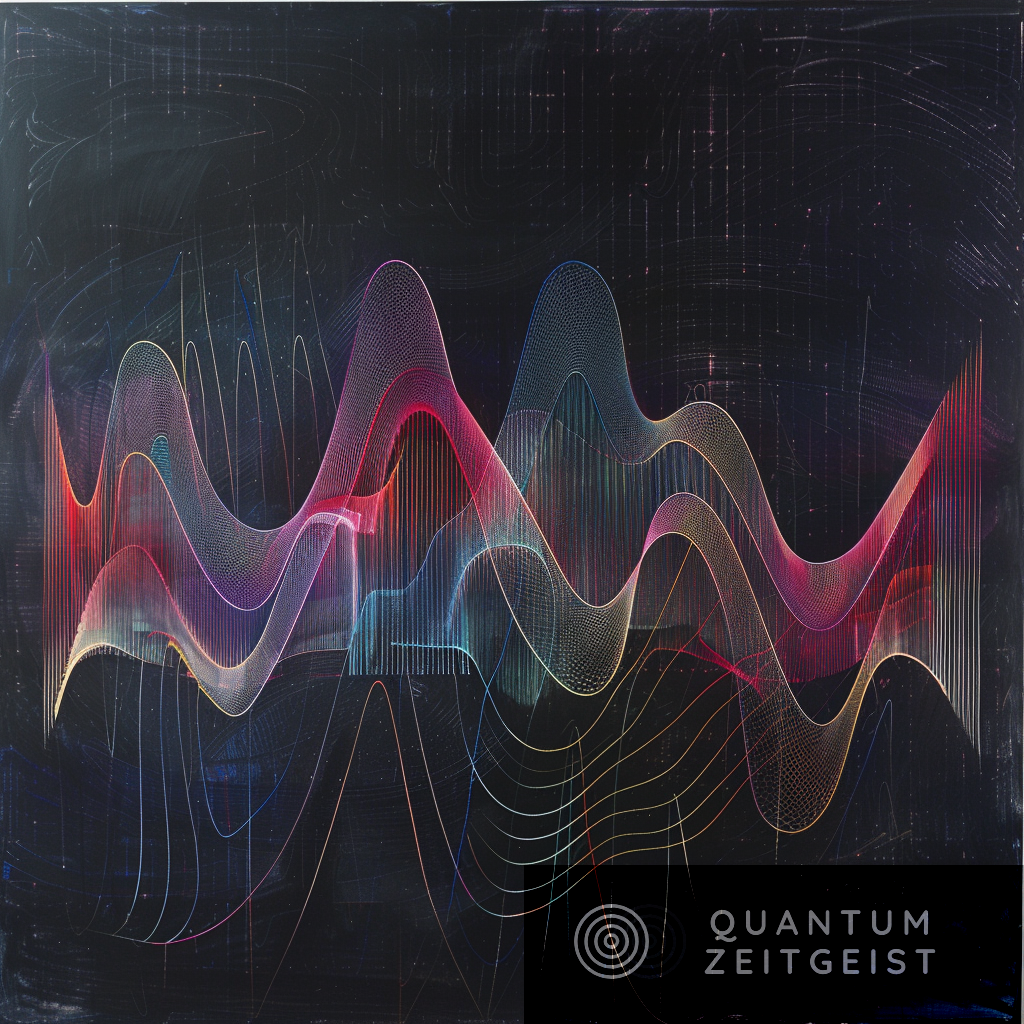Decoherence, the loss of quantum coherence, poses a significant challenge in the development of scalable quantum computing systems. Researchers from Seoul National University and Delft University of Technology have demonstrated techniques for suppressing transduced noise in silicon spin qubits, improving the inhomogeneous coherence time and Rabi oscillation quality. The study also highlights the potential of adaptive qubit control and noise suppression techniques in improving quantum computing performance. However, further research is needed to fully understand the impact of decoherence and noise on quantum computing systems and to develop more effective noise suppression techniques.
What is the Role of Decoherence in Quantum Computing?
Decoherence, or the loss of quantum coherence, is a significant challenge in the development of scalable quantum computing systems. Quantum coherence is the fundamental property that allows quantum computers to process information in ways that classical computers cannot. However, maintaining low gate errors consistently throughout circuit execution is crucial for the development of a scalable quantum computing system.
Materials such as isotopically purified silicon exhibit promising coherence properties for electron spin qubits. However, the omnipresent charge noise, when converted to magnetic noise under a strong magnetic field gradient, often hinders stable qubit operation within a time frame comparable to the data acquisition time.
Addressing and mitigating decoherence sources is therefore essential. In this study, researchers from Seoul National University and Delft University of Technology demonstrate both open and closed-loop suppression techniques for the transduced noise in silicon spin qubits. This resulted in a more than twofold tenfold improvement of the inhomogeneous coherence time and Rabi oscillation quality, leading to a single qubit gate fidelity of over 99.6%, even in the presence of a strong decoherence field gradient.
How Can Adaptive Qubit Control Improve Quantum Computing?
Adaptive qubit control is a powerful tool for stabilizing qubit operation via the active suppression of noise. It allows the precise manipulation of quantum states and has been validated in superconducting qubits, spins in diamond, and trapped atoms.
In the silicon Quantum Dot (QD) platform, previous studies to address unwanted interactions between the spin qubits and the environment have focused on the automated correction of slowly drifting system parameters. These studies demonstrated, for example, reliable single and two qubit parameter calibration, including optimal readout points, using a field programmable gate array (FPGA).
However, many of the silicon spin qubits fabricated thus far are negatively affected by transduced noise, which often extends to a wide range of frequencies. Rapid estimation of the Hamiltonian parameter by Bayesian inference has the potential for fast parameter calibration and is compatible with arbitrary qubit operations. This method can be used to improve the performance of qubits in a wide variety of quantum information processing applications.
What is the Impact of Noise Suppression in Quantum Computing?
Noise suppression plays a crucial role in the performance of quantum computing systems. In this study, the researchers demonstrate the rapid and real-time noise suppression in a 28SiSiGe spin qubit device. They focus on both open and closed-loop control on silicon spin qubits where the typical time scale of parameter fluctuation due mainly to charge noise transduced to magnetic noise in the presence of a micromagnet is comparable to the data acquisition time.
For open-loop noise suppression, the researchers investigate the controllable backaction of the charge sensor to the qubit. In this case, the dynamic pulsing of the sensor chemical potential to the Coulomb blockade regime is used to suppress the noise in the qubit manipulation phase.
The remaining noise is additionally suppressed by a hardware-implemented Bayesian inference and frequency feedback circuit. This technique enables single qubit gate fidelity above 99.6%, even in the presence of a large local magnetic field gradient and a significant source of charge noise.
How Can Gate Set Tomography Validate Quantum Computing Performance?
Gate set tomography (GST) is a method for characterizing quantum logic gates in a quantum computer. It provides a complete, accurate, and gauge-invariant description of a quantum gate set.
In this study, the researchers confirm the stability of the single qubit gate performance using GST. They also discuss the potential of applying the method to fast two-qubit parameter estimation.
GST is a powerful tool for validating the performance of quantum computing systems. It can provide valuable insights into the stability of gate fidelity and the potential for improving the performance of quantum computing systems.
What is the Future of Quantum Computing?
The development of scalable quantum computing systems is a significant challenge in the field of quantum information science. The ability to precisely control the qubit parameters and a deeper understanding of the origin of the noise affecting the qubit system are pivotal steps toward developing mitigation strategies.
The results of this study demonstrate the potential of noise suppression techniques and adaptive qubit control in improving the performance of quantum computing systems. These techniques can provide a useful subroutine during the repeated execution of general quantum circuits, contributing to the advancement of quantum computing technology.
However, further research is needed to fully understand the impact of decoherence and noise on the performance of quantum computing systems. The development of more effective noise suppression techniques and the application of methods such as GST to fast two-qubit parameter estimation could provide valuable insights into the future of quantum computing.
Publication details: “Passive and active suppression of transduced noise in silicon spin
qubits”
Publication Date: 2024-03-05
Authors: Jaemin Park, Hyeongyu Jang, Hanseo Sohn, Jonginn Yun, et al.
Source: arXiv (Cornell University)
DOI: https://doi.org/10.48550/arxiv.2403.02666

